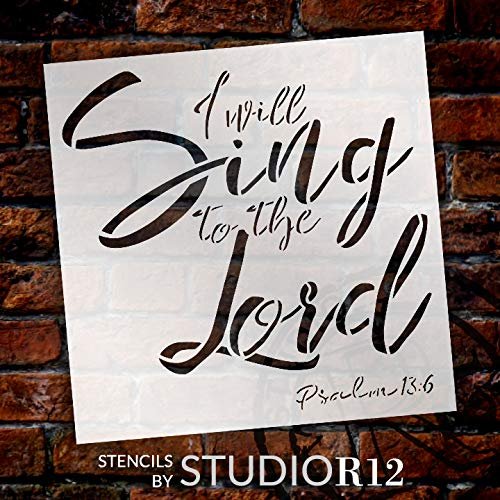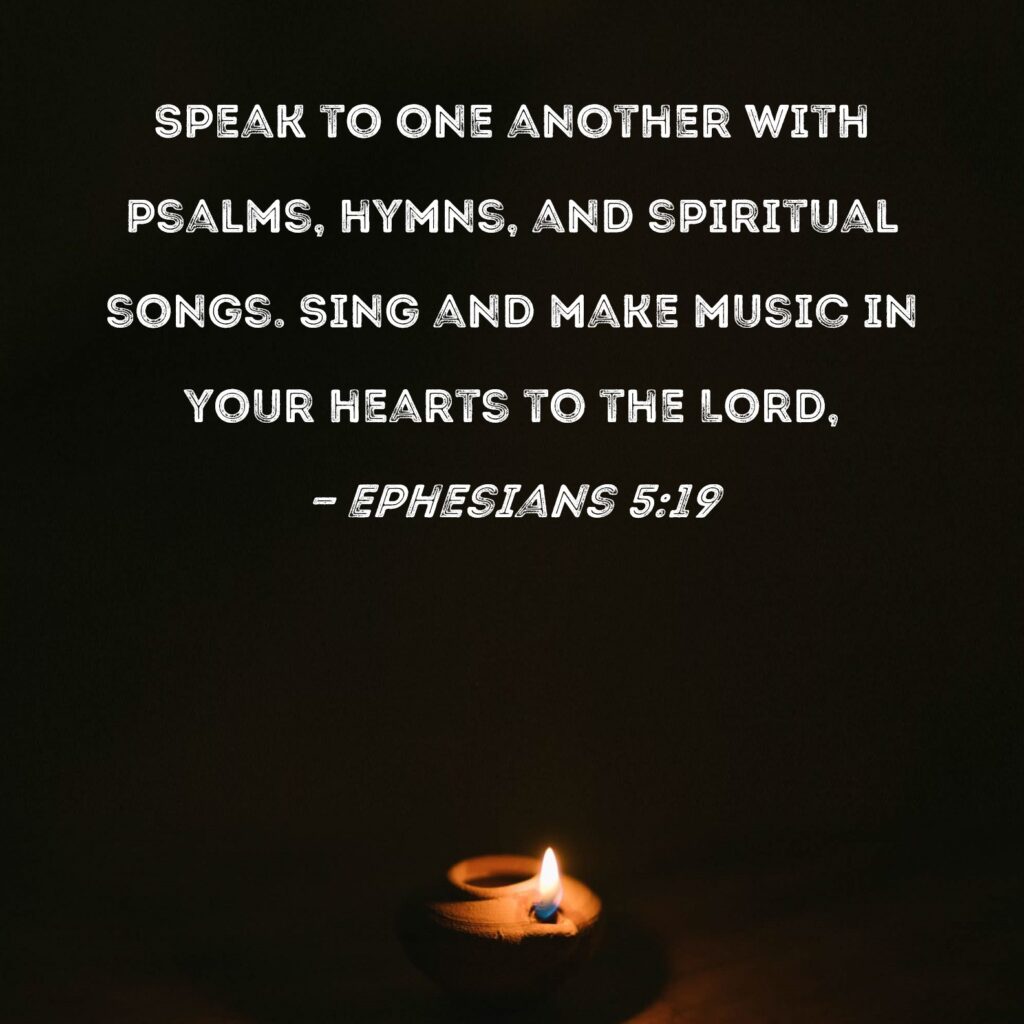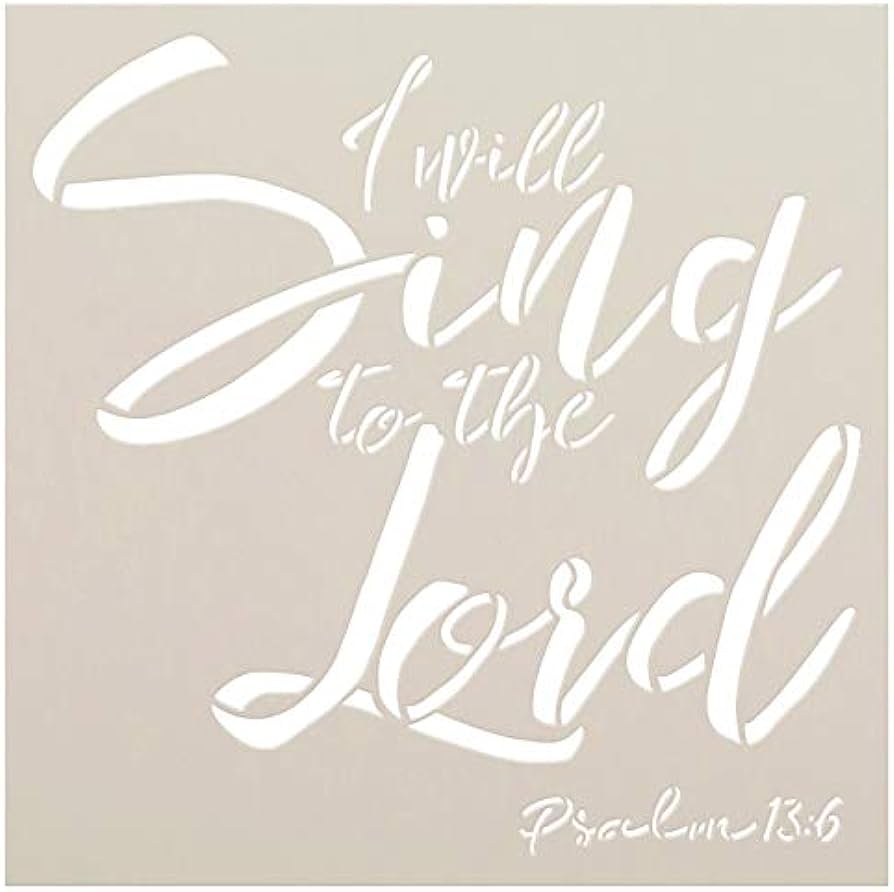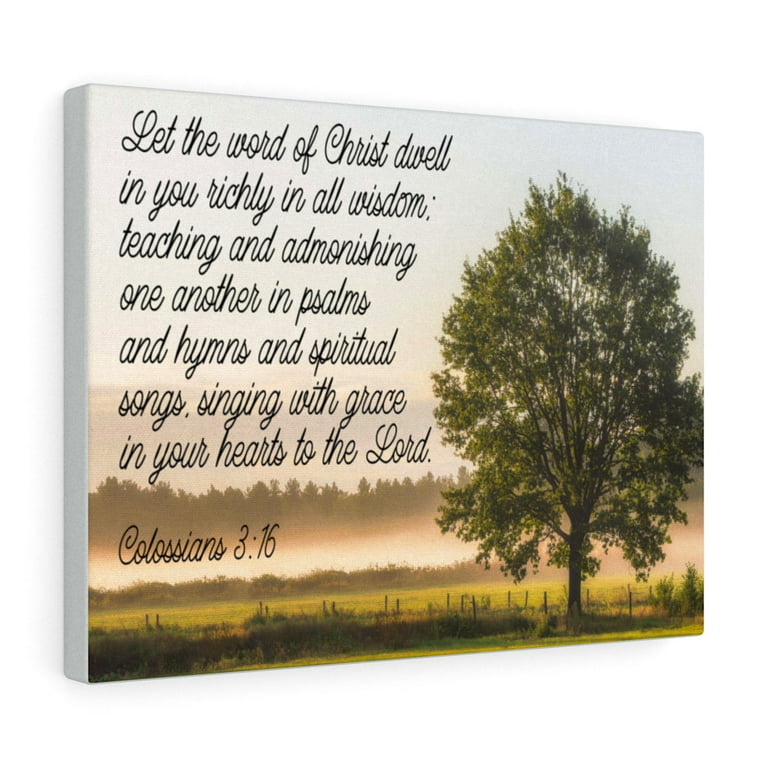Have you ever wondered where the beautiful hymns we sing in church come from? How they are crafted with such depth and meaning? Well, the answer lies in the rich well of scripture verse.
When it comes to crafting hymns, songwriters often draw inspiration from the Book of Psalms. These poetic and heartfelt verses provide a treasure trove of emotions and experiences that resonate with people from all walks of life. By taking these timeless words and setting them to music, hymn writers create powerful songs that communicate the deep truths of faith.
In the article, “From Psalms to Song: Crafting Hymns from Scripture Verse,” we will delve into the process of how these hymns are created, exploring the ways in which songwriters breathe new life into ancient words. We will discover the impact that these hymns have on individuals and congregations, and how they can draw us closer to our spiritual roots. So, join us on this musical journey as we uncover the beauty and power of crafting hymns from scripture verse.

This image is property of cdn11.bigcommerce.com.
The Importance of Hymns
Hymns as a Form of Worship
When you think of worship, what comes to mind? For many, hymns are an integral part of the worship experience. They have been used for centuries to express devotion, praise, and thanksgiving to God. Hymns provide a structured and melodic way to connect with the divine, bringing together music and lyrics in a meaningful and harmonious way. They allow us to come together as a community, lifting our voices in unity and reverence.
The Role of Scripture Verse in Hymns
At the heart of any hymn is the use of scripture verses. These verses serve as the foundation, grounding the song in the timeless words of the Bible. Scripture is inspired by God, and incorporating it into hymns adds depth and meaning to the music. The choice of scripture verse can vary depending on the theme or message of the hymn, but its presence reinforces the biblical teachings and offers a connection to the divine.
Understanding Psalms
The Purpose of Psalms
Psalms, a collection of poetic and lyrical passages found in the Bible, have long been a source of inspiration for hymn writers. They cover a wide range of emotions and themes, including praise, lament, thanksgiving, and trust in God. The purpose of the psalms is to offer a means of communication between humanity and God, providing a voice to express our deepest joys and sorrows.
The Themes and Structure of Psalms
The psalms cover various themes, such as creation, redemption, deliverance, and the attributes of God. They are structured in different forms, including hymns, prayers, and meditations. This diversity allows for a wide range of expressions and emotions, making them a rich source for crafting hymns. By drawing from the themes and structure of the psalms, hymn writers can create songs that resonate with the human experience and reflect the essence of worship.
Examples of Psalms in the Bible
Throughout the Bible, we find many examples of psalms that have shaped both Jewish and Christian worship traditions. One well-known example is Psalm 23, often referred to as the Shepherd’s Psalm. It speaks of God’s guidance and provision, offering comfort and assurance to those who trust in Him. Another example is Psalm 150, a hymn of praise that encourages the use of various instruments and voices to worship God. These psalms, among many others, have served as the inspiration for countless hymns throughout history.
The Evolution of Hymns
Historical Origins of Hymns
Hymns have a rich history that spans centuries and cultures. The earliest hymns can be traced back to ancient civilizations, where they were used in religious rituals and ceremonies. In Christianity, hymns became prominent during the early church, with the Psalms serving as the basis for many early Christian hymns. As the church grew, the use of hymns expanded, and they became a way to transmit theological teachings and doctrines to the congregation.
Development of Musical Styles in Hymns
Over time, hymns have evolved musically as well. From simple chant-like melodies to complex compositions, hymns have embraced different musical styles and genres. They have been influenced by the cultural expressions of different eras and regions, incorporating instruments, harmonies, and rhythms that reflect the diverse beauty of worship. This evolution has allowed hymns to remain relevant and continue to inspire worshipers throughout generations.
Influence of Psalms on Early Christian Hymnody
During the early Christian period, the Psalms played a significant role in shaping hymnody. Many early Christian hymns were direct adaptations or expansions of psalms, integrating Christian beliefs and teachings into the lyrics. By incorporating the words of the psalms, these hymns were not only a form of worship but also a way to reinforce the connection between the Old and New Testaments. The influence of the psalms on early Christian hymnody is a testament to their enduring spiritual power.
Crafting Hymns from Scripture Verse
Selecting Appropriate Scripture Verse
When crafting hymns from scripture verses, choosing the right passage is crucial. The verse should align with the theme or message of the hymn, providing a solid foundation for the lyrics and music. It should be a verse that resonates with the worshiper, evoking a sense of awe, reverence, or gratitude towards God. By selecting an appropriate scripture verse, hymn writers can create songs that speak to the hearts and minds of those who sing them.
Interpreting and Adapting Scripture Verse
Once a scripture verse is chosen, it is essential to interpret and adapt it to fit the hymn’s structure and message. This involves understanding the context of the verse, exploring its underlying meaning, and finding creative ways to express it through lyrics and melody. Hymn writers have the task of capturing the essence of the scripture passage while making it accessible and relatable to a wider audience. Through this process of interpretation and adaptation, scripture verses come alive in a new and vibrant way.
Incorporating Poetic Devices and Melody
Crafting hymns from scripture verse goes beyond simply quoting the text. Hymn writers often employ various poetic devices, such as metaphors, imagery, and rhyme, to enhance the lyrical beauty of the song. These devices help to convey the intended message and create a memorable and engaging worship experience. Additionally, melody plays a crucial role in shaping hymns. The musical composition adds depth and emotion to the lyrics, allowing the worshiper to connect with the words on a deeper level.

This image is property of biblehub.com.
The Role of Hymns in Worship
Fostering Community and Communal Worship
Hymns have the power to bring people together in worship. By singing hymns as a congregation, we not only express our individual faith but also participate in a collective act of devotion. Hymns foster a sense of community, reminding us that we are part of something greater than ourselves. They create an atmosphere of unity and togetherness, allowing us to lift our voices as one and worship God as a community.
Inspiring Spiritual Reflection and Devotion
Hymns provide a space for spiritual reflection and devotion. Through their lyrics and music, they invite us to contemplate God’s goodness, grace, and love. Hymns offer a time for introspection, allowing us to connect with God on a personal level and deepen our faith. They serve as a reminder of God’s presence in our lives and inspire us to seek Him more earnestly.
Providing a Vehicle for Collective Expression
Hymns offer a vehicle for collective expression of our faith and worship. They provide a platform for us to proclaim our beliefs and declare the truths of God’s word. Hymns enable us to join our voices with those who have come before us and those who will come after us, creating a continuum of worship throughout generations. In this way, hymns bridge the gap between past and present, connecting us to the legacy of faith that has been passed down through the ages.
Impact of Hymns on Christian Spirituality
Hymns as a Means of Personal Connection to God
Hymns have a profound impact on Christian spirituality. Through their words and music, they offer a means of personal connection to God. Hymns allow us to express our deepest emotions, hopes, and fears, giving voice to our innermost thoughts and prayers. They create a space for us to pour out our hearts before God and experience His presence in a tangible way.
Hymns as a Source of Comfort and Encouragement
In times of difficulty and trials, hymns serve as a source of comfort and encouragement. Their timeless messages of hope and trust remind us of God’s faithfulness and unfailing love. Hymns offer solace and strength, reminding us that we are not alone in our journey. They provide a refuge in which we can find peace and assurance, even in the midst of life’s storms.
Hymns as Tools for Teaching and Theological Reflection
Hymns are not only vehicles for worship but also tools for teaching and theological reflection. Through their lyrics, they convey deep theological truths and doctrines in a way that is accessible to all. Hymns serve as a means of imparting biblical knowledge and fostering a deeper understanding of God’s word. They help us to engage with scripture and reflect on its meaning, inviting us to embrace a more comprehensive faith.

This image is property of Amazon.com.
Contemporary Approaches to Hymn Writing
Exploring New Musical Styles and Genres
In contemporary hymnody, hymn writers are exploring new musical styles and genres. They are incorporating elements of contemporary music, such as pop, rock, folk, and gospel, to create hymns that resonate with a diverse range of worshipers. This approach allows hymns to remain relevant in a changing world while still honoring the rich traditions of worship.
Incorporating Contemporary Language and Themes
Hymn writers are also utilizing contemporary language and themes in their lyrics. By doing so, they make the message of the hymn more accessible and relatable to modern worshipers. These hymns address current issues, struggles, and joys, providing a voice to the realities of our world while pointing us to the eternal truths of God’s word.
Engaging with Diverse Cultural Expressions
The global nature of Christianity is reflected in hymnody as well. Hymn writers are embracing diverse cultural expressions, drawing from different musical traditions and languages. This inclusivity allows for a richer and more vibrant worship experience, reflecting the diverse nature of the body of Christ.
Conclusion
From psalms to song, hymnody has played a vital role in Christian worship throughout history. By crafting hymns from scripture verse, hymn writers create a bridge between the ancient words of the Bible and the modern-day worshiper. Hymns foster communal worship, inspire spiritual reflection, and provide a vehicle for collective expression of our faith. They impact Christian spirituality by allowing for personal connection to God, offering comfort and encouragement, and serving as tools for teaching and theological reflection. As we explore contemporary approaches to hymn writing, we ensure that hymnody remains relevant and engaging for worshipers today. The enduring power of hymns lies in their ability to bring us closer to God and remind us of His everlasting love and grace.

This image is property of i5.walmartimages.com.







